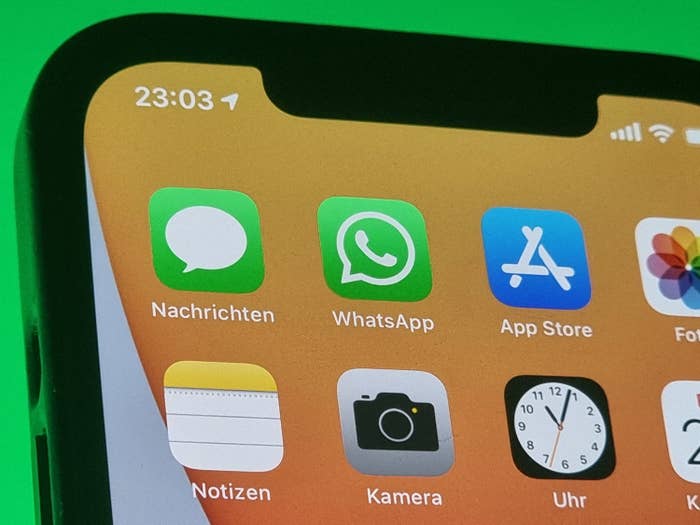
Messaging service WhatsApp is suing the Indian government in the Delhi High Court, challenging new rules that would force it to break its encryption, potentially revealing the identities of people who had sent and received billions of messages on its platform, a WhatsApp spokesperson told BuzzFeed News.
“Civil society and technical experts around the world have consistently argued that a requirement to ‘trace’ private messages would break end-to-end encryption and lead to real abuse,” a WhatsApp spokesperson told BuzzFeed News. “WhatsApp is committed to protecting the privacy of people’s personal messages and we will continue to do all we can within the laws of India to do so.”
In a statement published on Wednesday morning, India’s IT ministry said it will only require WhatsApp to disclose who sent a message in cases related to the “sovereignty, integrity and security of India, public order incitement to an offence relating to rape, sexually explicit material or child sexual abuse material.”
It also pointed out that rumors and misinformation spreading over WhatsApp had caused lynchings and riots in the past.
“Any operations being run in India are subject to the law of the land,” the ministry’s statement added. “WhatsApp’s refusal to comply with the [rules] is a clear act of [defiance].”
More than 400 million of the 1.2 billion people who use WhatsApp, which is owned by Facebook, are from India.
Since 2016, messages and files sent through WhatsApp have been encrypted, which means that nobody except the sender and the receiver can see their contents. WhatsApp has long said this is important for people’s privacy. But governments around the world, including the US, the UK, Australia, Canada, and Japan have been pressuring apps like WhatsApp to break that encryption, saying that not being able to track who sent what poses a challenge for law enforcement. Digital rights organizations like Access Now, the Electronic Frontier Foundation, and Mozilla have supported WhatsApp’s fight to maintain end-to-end encryption. Reuters first reported about the lawsuit.
India’s recently enacted IT rules require messaging platforms like WhatsApp to trace content back to senders. They also grant India’s government power to ask platforms that take down content that goes against “decency or morality” and threatens “national security” and “public order.” If companies do not comply with the new rules, their employees can face criminal action.
In a blog post on its official website published late on Tuesday, WhatsApp said that a "government that chooses to mandate traceability is effectively mandating a new form of mass surveillance."
It also said traceability would violate human rights. “Innocent people could get caught up in investigations, or even go to jail for sharing content that later becomes a problem in the eyes of a government even if they did not mean any harm by sharing it in the first place,” WhatsApp’s post said. “The threat that anything someone writes can be traced back to them takes away people’s privacy and would have a chilling effect on what people say even in private settings, violating universally recognized principles of free expression and human rights.”
India is a large and important market for global technology giants. But in recent times, these companies have been facing pressure from an increasingly authoritarian government led by Prime Minister Narendra Modi. Last month, India ordered Twitter, Facebook Instagram, and YouTube to block content critical of the government’s handling of the coronavirus pandemic. Earlier this week, police in Delhi visited Twitter’s offices after the platform labeled some tweets by members of the ruling party as “manipulated media.”
UPDATE
This story was updated with a statement from India's IT ministry.

